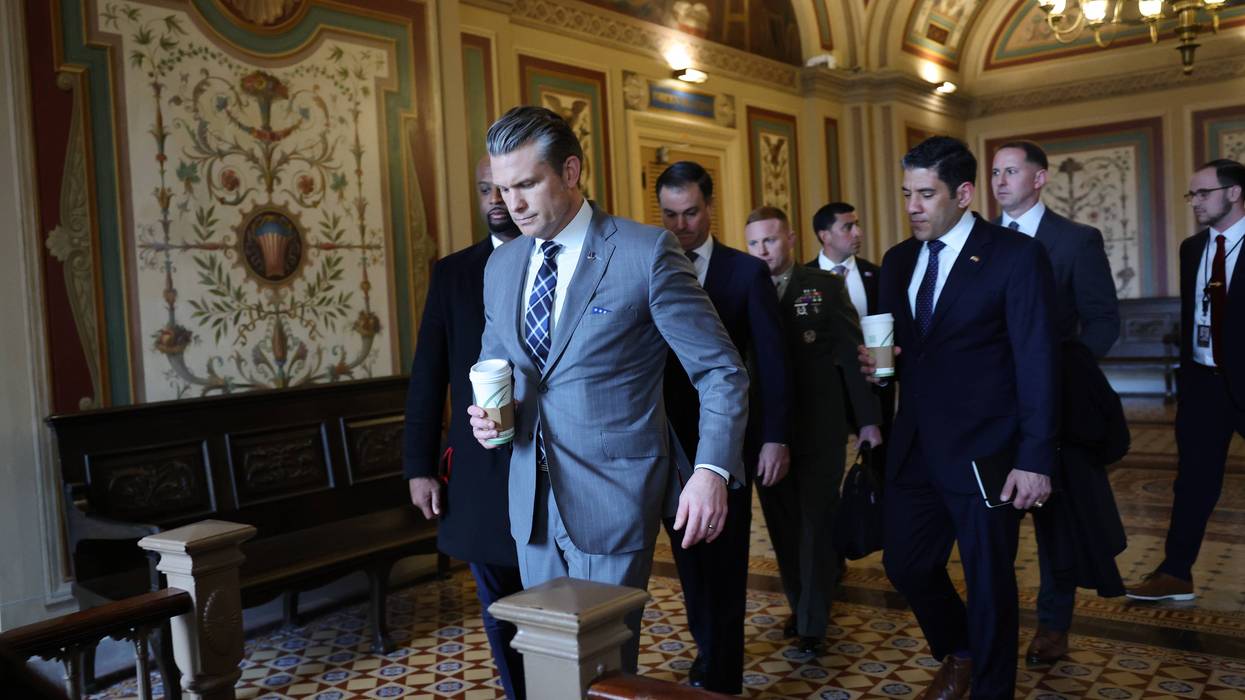July, 30 2015, 03:00pm EDT

Brown Administration Sued for Ignoring Risk Report on Fracking
Oil Agency OK'd Fracking Without Considering Scientists' Warnings on Water, Health, Safety
SACRAMENTO, Calif.
The Center for Biological Diversity sued California's scandal-plagued oil agency today for finalizing an inadequate environmental review of fracking eight days before the release of a state-mandated study showing that fracking and oil industry pollution threatens air, water and public health.
The report recommended halting fracking and oil drilling near homes, schools and hospitals. Millions of Californians live close enough to fracking or other oil and gas operations to be exposed to dangerous air pollution. Scientists also found that most fracking in California is done at shallow depths, increasing water-pollution risks.
"Oil regulators defied state lawmakers by failing to consider the damage that fracking does to the air we breathe and the water we drink," said Center attorney Kassie Siegel. "In New York, Gov. Cuomo banned fracking after reviewing the science. In California, Gov. Brown simply refused to consider the dangers outlined by scientists and is putting millions of Californians at risk."
The suit, filed in Superior Court in Sacramento County, challenges the Division of Oil, Gas and Geothermal Resources' decision to finalize a flawed "environmental impact report" on fracking and well stimulation before the California Council on Science and Technology statewide scientific study of extreme oil production was released. That violated Senate Bill 4 -- a new fracking disclosure law -- and the California Environmental Quality Act.
S.B. 4 required the science council study to be completed by Jan. 1, 2015, so that it would be fully considered in the environmental impact report required by July 1, 2015. But after the science council study was delayed, oil officials instead finalized the environmental impact report and green-lighted fracking about a week before scientists released their study.
In the report the science council urged the state not to issue permits for "shallow fracking" -- about three-quarters of all fracking done in California -- unless officials could somehow conclusively say that groundwater could be protected. The report found that fracking in the state commonly employs dangerously toxic chemicals at shallow depths near drinking-water aquifers, creating a greater risk of water contamination than in other states.
"Nurses understand that many of the new techniques for extracting gas and oil can threaten people's health," said Barbara Sattler of the Alliance of Nurses for Healthy Environments. "In many of the communities where these techniques are being applied the communities' health is already under siege by the worst air pollution in the state. The additional insult of extraction-related exposures is going to cause even more health problems in at risk children, adults, and the elderly. Continuing to expand these practices is counter to all public health values; it is unsafe and unfair. And it is unacceptable."
Oil companies now frack about half of all new wells drilled in California.
"We were promised that decisions on fracking in California would be guided by science, but that hasn't happened," Siegel said. "The Brown administration finalized the environmental impact report a week before the science review panel issued its report showing devastating risks to Californians from oil extraction. How many broken promises do we have to see before Gov. Brown bans fracking and starts protecting us from oil industry pollution?"
The Center is represented by Deborah Sivas of Stanford Law School and Center attorneys Clare Lakewood and Kassie Siegel.
At the Center for Biological Diversity, we believe that the welfare of human beings is deeply linked to nature — to the existence in our world of a vast diversity of wild animals and plants. Because diversity has intrinsic value, and because its loss impoverishes society, we work to secure a future for all species, great and small, hovering on the brink of extinction. We do so through science, law and creative media, with a focus on protecting the lands, waters and climate that species need to survive.
(520) 623-5252LATEST NEWS
‘Not One Damn Penny’: Pentagon Expected to Ask Congress for Billions to Fund Iran War
"While they kick 17 million Americans off their healthcare, Republicans want to spend billions on Trump’s reckless war of choice," said the chair of the Congressional Progressive Caucus. "Hell no."
Mar 04, 2026
The Pentagon is reportedly planning to ask Congress to approve a supplemental funding package of around $50 billion to help finance the Trump administration's unauthorized war on Iran, which has already cost billions of dollars and many lives.
Progressives were quick to reject the idea of providing the bloated, fraud-ridden Pentagon with additional funds to sustain a war that lawmakers did not approve and that is broadly unpopular with the American public.
"While they kick 17 million Americans off their healthcare, Republicans want to spend billions on Trump’s reckless war of choice," said Rep. Greg Casar (D-Texas), chair of the Congressional Progressive Caucus. "Hell no."
Reuters reported Tuesday that "Deputy Defense Secretary Steve Feinberg has been leading Pentagon work in recent days on a supplemental budget request of around $50 billion that could be released as soon as Friday."
"The new money would pay for replacing the weapons used in recent conflicts including those in the Middle East," the outlet added. "The figure is preliminary and could change."
Sen. Lindsey Graham (R-SC), the most vocal cheerleader of the war in Congress, told reporters Tuesday that he believes "there will be a supplemental" funding request from the Pentagon.
"We'll have to approve that," said Graham.
"If this war continues at the same pace, Americans could see their government burn through tens of billions of dollars, funds that would amount to the cost of Medicaid for millions in the United States."
The push for a supplemental funding package is the latest indication that the assault on Iran—launched with no clear justification, objective, or timeline and in violation of domestic and international law—could drag on indefinitely, even as Trump administration officials deny that the president who ran on avoiding wars has embroiled the nation in another disastrous quagmire in the Middle East.
Dylan Williams, vice president for government affairs at the Center for International Policy, wrote Tuesday that Congress should approve "not one damn penny" for Trump's war on Iran.
The Center for American Progress (CAP) estimated Tuesday that the Iran war has likely already cost US taxpayers more than $5 billion.
"At more than $5 billion and counting, the costs of Operation Epic Fury—in only its first few days of operations—could cover Supplemental Nutrition Assistance Program (SNAP) benefits for more than 2 million Americans for a year," noted CAP's Allison McManus. "If this war continues at the same pace, Americans could see their government burn through tens of billions of dollars, funds that would amount to the cost of Medicaid for millions in the United States."
Keep ReadingShow Less
After Classified Iran Briefing, Dems More Convinced Trump Wants Ground Invasion and Forever War
"I am more fearful than ever, after this briefing, that we may be putting boots on the ground," said Sen. Richard Blumenthal.
Mar 04, 2026
Senate Democrats said after receiving a classified briefing from the Trump administration on Tuesday that they're increasingly concerned about the US-Israeli war on Iran dragging on "forever"—and involving American troops in a ground invasion.
"I am more fearful than ever, after this briefing, that we may be putting boots on the ground," Sen. Richard Blumenthal (D-Conn.) told reporters, criticizing the Trump administration for not providing the American public with information that was given to senators behind closed doors.
Blumenthal's warning came a day after President Donald Trump publicly declined to rule out a ground invasion of Iran, saying he doesn't "have the yips with respect to boots on the ground."
"Every president says, ‘There will be no boots on the ground.’ I don’t say it," Trump told the New York Post. The Trump administration's letter formally notifying Congress of the initial attacks on Iran—sent days after the war began—said "no United States ground forces were used in these strikes."
Sen. Chris Murphy (D-Conn.) emerged from Tuesday's briefing—which included Pentagon Secretary Pete Hegseth, CIA Director John Ratcliffe, and other top officials—"more convinced" that the war on Iran "is going to be open-ended and forever."
"This feels like a multitrillion-dollar open-ended conflict with a very confusing and constantly shifting set of goals," said Murphy. "They told us in that room that there are going to be more Americans that are going to die."
"We shouldn't be voting to proceed to other pieces of legislation until we get a debate on this deeply unpopular, immoral, and illegal war with Iran," Murphy added.
Here's what I believe: no more business as usual in the Senate. We shouldn't be voting to proceed to normal legislation until Republicans schedule a debate and a vote and on a declaration of war against Iran. Let's see if Trump has the votes to authorize war. I bet he doesn't. pic.twitter.com/KIrkMD54yQ
— Chris Murphy 🟧 (@ChrisMurphyCT) March 4, 2026
Sen. Elizabeth Warren (D-Mass.) addressed her concerns to the American public, saying in a video posted to social media that "it is so much worse than you thought."
"You are right to be worried," said Warren. "The Trump administration has no plan in Iran. This illegal war is based on lies, and it was launched without any imminent threat to our nation. Donald Trump still hasn't given a single clear reason for this war, and he seems to have no plan for how to end it, either."
I just left a classified briefing with the Trump Administration about the war in Iran.
I was worried before, but I’m more worried now. pic.twitter.com/HoSWLVWrR8
— Elizabeth Warren (@SenWarren) March 3, 2026
The briefing came after the Pentagon announced it would be sending additional troops to the Middle East as the American death toll rose to six—and the Iranian death toll neared 800 and counting.
The Trump administration, which has neither sought nor received congressional authorization for military action in Iran, has repeatedly declined to provide a clear timeline or objective for the attacks and offered muddled justifications for why they were purportedly necessary.
US Secretary of State Marco Rubio told reporters after Tuesday's briefings that the administration aims to "systematically" dismantle Iran's ballistic missile program, "destroy their ability to sponsor terrorism," and "destroy their Navy"—goals that go well beyond protecting the United States from a supposedly imminent threat.
On Wednesday, the Republican-controlled Senate plans to begin voting on a war powers resolution aimed at forcing the president to end military operations in Iran.
"Every senator will have to go on the record to declare whether it is in our best interest to send our sons and daughters into conflict against Iran," said Sen. Tim Kaine (D-Va.), the measure's lead sponsor. "I pray that my colleagues will vote to end this dangerous and unnecessary war that has already resulted in the loss of six servicemembers and injured others. We owe it to those in uniform, their families, and all Americans to not make the same mistakes that we made in Iraq and Afghanistan.”
Keep ReadingShow Less
Democratic Lawmakers Demand Probe Into DHS Warrantless Location Tracking
“Location data is extremely sensitive, and can reveal someone’s religion, their political views, medical conditions, addictions, and with whom they spend time."
Mar 03, 2026
Over 70 Democratic US lawmakers on Tuesday demanded a new investigation into warrantless purchases of Americans' location data by Department of Homeland Security agencies—including Immigration and Customs Enforcement—which critics say violate the Fourth Amendment prohibition of unwarranted search and seizure.
In a letter to DHS Inspector General Joseph Cuffari, 72 congressional Democrats led by Sen. Ron Wyden (D-Ore.) and Rep. Adriano Espaillat (D-NY) wrote, "Public contracting documents indicate that Immigration and Customs Enforcement (ICE) recently resumed buying Americans’ location data from a shady data broker" after the agency "ended a previous program to purchase Americans’ cellphone location data in 2023, following an investigation by your office and scrutiny from Congress."
"Location data is extremely sensitive, and can reveal someone’s religion, their political views, medical conditions, addictions, and with whom they spend time," the lawmakers' letter states. "It is for that reason that ordinarily, the government must obtain a warrant from a judge in order to demand such data from phone or technology companies."
While the Fourth Amendment generally prohibits the government from searching or obtaining Americans' private information without a warrant, federal agencies have circumvented the proscription by buying sensitive personal data from private brokers.
"Public reports indicate that ICE has resumed its location data purchases, even though DHS has yet to adopt all of the recommendations from your prior review," the lawmakers noted in their letter.
The letter continues:
ICE issued a no-bid contract to the surveillance company PenLink in 2025, which included licenses for its location tracking product, Webloc, according to press reports. Webloc was developed by the controversial surveillance company Cobwebs Technologies, which was combined with Nebraska-based PenLink as part of a $200 million private equity deal in 2023. Cobwebs gained notoriety when Meta banned the company in 2021, as part of a crackdown on surveillance mercenaries after detecting the company’s customers targeting activists, opposition politicians, and government officials in Hong Kong and Mexico.
ICE is now stonewalling congressional oversight into its purchase of location data. Sen. Wyden’s office requested a briefing from ICE soon after this contract was revealed in the press, in October, which was scheduled in December, for February 10, 2026. One day before that briefing was to take place, ICE canceled it with no explanation and without any offer to reschedule.
"Given DHS’ failure to adopt a policy for the use of commercial data, coupled with ICE awarding a no-bid contract to a shady data broker that is likely violating federal law, we urge you to open another investigation into the purchase," the lawmakers wrote.
The letter asks:
- Whether ICE and other DHS components are purchasing illegally obtained location data about Americans;
- If so, why does DHS not have policies in place to prevent taxpayer dollars from going to contractors that have invaded Americans’ privacy in violation of federal law;
- How ICE and other DHS components have used location data and whether they have used it to investigate Americans for engaging in constitutionally protected activities, including protesting or monitoring ICE operations;
- Whether ICE and other DHS components are auditing employee access to commercial location data to identify likely patterns of abuse; and
- Why has DHS still not adopted a policy for the use of commercial location data, as you recommended in 2023?
As the Electronic Frontier Foundation (EFF) recently explained, ICE has spent $5 million on Webloc and Tangles, another location and social media surveillance product made by PenLink.
According to EFF:
Webloc gathers the locations of millions of phones by gathering data from mobile data brokers and linking it together with other information about users. Tangles is a social media surveillance tool which combines web scraping with access to social media application programming interfaces. These tools are able to build a dossier on anyone who has a public social media account. Tangles is able to link together a person’s posting history, posts, and comments containing keywords, location history, tags, social graph, and photos with those of their friends and family. PenLink then sells this information to law enforcement, allowing law enforcement to avoid the need for a warrant. This means ICE can look up historic and current locations of many people all across the US without ever having to get a warrant.
There have been several attempts to solidify restrictions on government purchase of Americans' personal data in recent years, most notably the Fourth Amendment Is Not for Sale Act (FANFSA), which failed to pass.
Last month, Sens. Dick Durbin (D-Ill.) and Mike Lee (R-Utah) introduced the Security and Freedom Enhancement Act, which would reauthorize Section 702 of the Foreign Intelligence Surveillance Act but is also intended to protect Americans from warrantless spying, including by closing the data broker loophole that lets law enforcement buy their way around the Fourth Amendment.
Also last month, Rep. Shontel Brown (D-Ohio) led 13 Democratic lawmakers who sent a separate letter to Homeland Security Secretary Kristi Noem seeking answers about ICE's use of PenLink surveillance technology "designed to collect and analyze cellphone location data across entire neighborhoods."
"Mass surveillance of entire communities or city blocks raises serious questions about data privacy and potential violations of civil liberties," Brown wrote.
"Americans should be able to trust their government to uphold the Constitution and respect fundamental rights," she added. "Instead, DHS appears to be engaging in broad surveillance practices to monitor entire communities, violating Americans’ fundamental civil rights and civil liberties to punish dissent and advance the president's cruel and unconstitutional mass deportation agenda."
Keep ReadingShow Less
Most Popular


